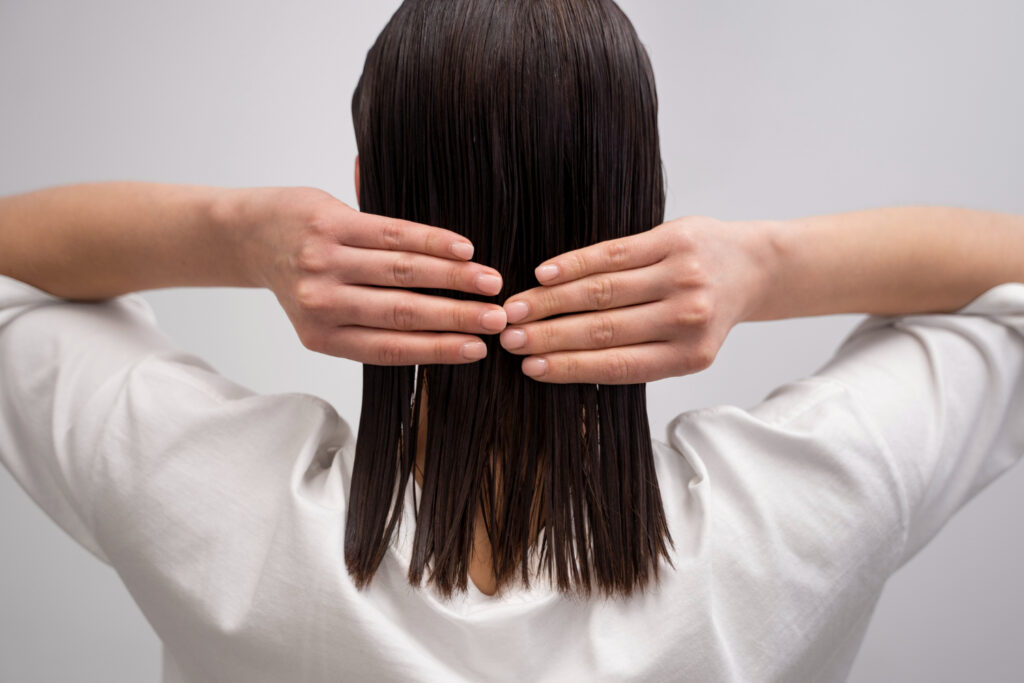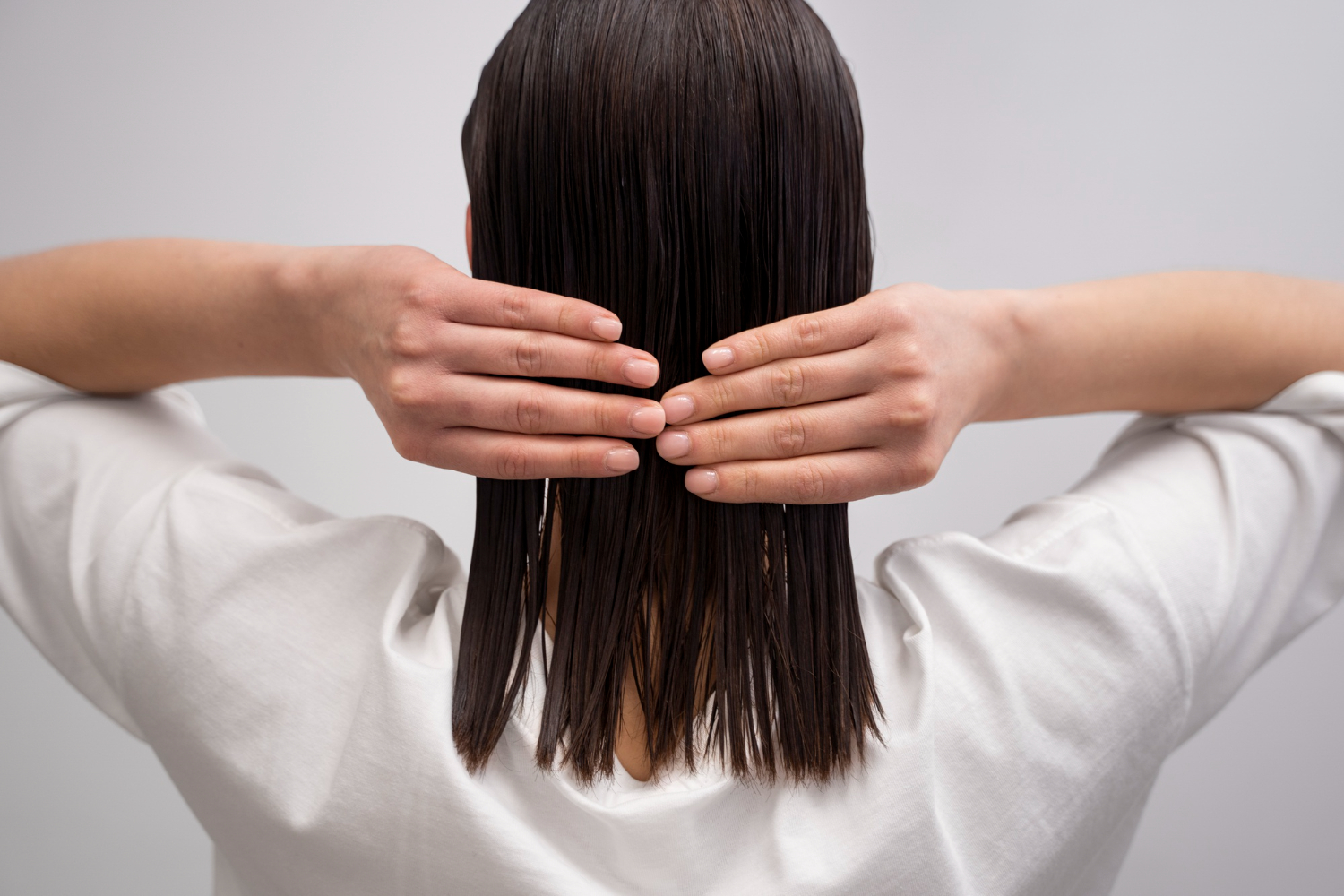
Table of Contents
Overview
Dreaming of long, luscious locks? You’re not alone. Many of us want to know the secret to faster hair growth, but it often feels elusive. The truth is, while genetics play a significant role in hair growth, there are various other factors within your control that can speed up the process. This article will guide you through practical and effective tips for boosting your hair growth naturally, from improving your diet and scalp care to incorporating healthier hair habits and stress management techniques.
Understanding the Hair Growth
Before diving into tips for faster hair growth, it’s essential to understand how hair grows. The hair growth cycle consists of three main phases:
- Anagen (Growth Phase): This is the active growth phase, lasting between two to six years. The longer this phase lasts, the longer your hair will grow.
- Catagen (Transition Phase): Lasting around two to three weeks, this phase marks the end of active hair growth as the hair follicle shrinks and detaches from the blood supply.
- Telogen (Resting Phase): During this phase, which lasts about three months, hair rests before eventually falling out and making way for new growth.
Hair grows approximately half an inch per month on average, but several factors, including diet, hair care habits, and lifestyle, can influence this rate. Here are the best strategies to make your hair grow faster and healthier.
1. Nourish Your Hair with the Right Nutrients
A balanced, nutrient-rich diet is key to promoting hair growth. Since hair is made primarily of keratin (a protein), consuming enough protein is crucial. Incorporating lean meats, fish, eggs, and plant-based protein sources like beans and lentils can help provide the building blocks for hair growth.
In addition to protein, several vitamins and minerals are essential for healthy hair:
- Biotin (Vitamin B7): This vitamin supports keratin production and is found in foods like eggs, nuts, seeds, and leafy greens.
- Iron: Found in spinach, red meat, and fortified cereals, iron is essential for transporting oxygen to hair follicles, promoting growth.
- Vitamin C: This powerful antioxidant, found in citrus fruits and bell peppers, helps the body absorb iron and supports collagen production, crucial for healthy hair.
- Omega-3 Fatty Acids: Found in fatty fish like salmon, flaxseeds, and walnuts, omega-3s nourish hair follicles and boost scalp health.
2. Prioritize Scalp Health
Healthy hair starts with a healthy scalp. Regularly cleansing your scalp to remove product buildup, excess oil, and dead skin cells can create an ideal environment for hair growth. When washing your hair, gently massage your scalp to increase blood circulation, which stimulates the hair follicles.
Exfoliating your scalp once or twice a week using a gentle scrub or a brush can further promote hair growth by unclogging hair follicles and allowing new hair to grow freely. Keep your scalp hydrated by using moisturizing treatments or oils, especially if you struggle with dryness.
3. Avoid Heat and Chemical Damage
Heat styling tools like curling irons, flat irons, and blow dryers can weaken your hair over time, leading to breakage and slower growth. Whenever possible, allow your hair to air dry and use heat-styling tools sparingly. When you do use heat, always apply a heat protectant to minimize damage.
Additionally, chemical treatments like hair dye, perms, and relaxers can damage the hair shaft, leading to brittle and weak hair. If you use these treatments, take steps to protect your hair, such as using deep conditioning masks and protein treatments to keep it nourished and resilient.
4. Handle Your Hair with Care
How you handle your hair daily can impact its growth. Be gentle when brushing or combing your hair, especially when it’s wet, as wet hair is more prone to breakage. Use a wide-tooth comb or a detangling brush, and start detangling from the ends, working your way up to avoid pulling or damaging your hair.
Avoid tight hairstyles like ponytails, buns, or braids that tug on your scalp and hair, leading to breakage or traction alopecia (hair loss due to tension). Opt for looser styles that don’t stress your hair and scalp. When using hair ties, choose ones made from fabric or other soft materials to prevent hair from getting caught and damaged.
5. Trim Regularly to Prevent Split Ends
Trimming your hair regularly may seem counterproductive when trying to grow it out, but it’s essential for maintaining healthy ends. Split ends can travel up the hair shaft, causing breakage and reducing overall hair length. Getting a trim every six to eight weeks removes damaged ends, allowing your hair to grow longer and stronger over time
Related article. Tips for Maintaining Healthy Hair
6. Manage Stress Levels
Stress can significantly impact your hair growth. When you’re stressed, your body diverts resources to more critical bodily functions, which can cause your hair to enter the resting (telogen) phase prematurely, leading to hair loss. Managing stress through relaxation techniques such as meditation, yoga, or regular exercise can help maintain healthy hair growth.
7. Consider Hair Growth Supplements
If you’re not getting enough nutrients from your diet, hair growth supplements can help fill the gaps. Look for supplements that contain biotin, zinc, and vitamins A, C, and E, as these are known to support hair health. However, it’s important to consult with your healthcare provider before starting any new supplement to ensure it’s safe for you and your specific needs.
8. Protect Your Hair from Environmental Damage
Environmental factors like UV rays, pollution, and harsh weather can weaken your hair and slow down growth. Wearing a hat or scarf when outdoors can help protect your hair from sun damage. Additionally, using hair products that contain UV filters can shield your hair from harmful rays. If you live in a polluted area, regular deep cleansing treatments can help remove environmental toxins from your hair and scalp.
The Takeaway
Growing your hair faster isn’t just about genetics; it’s about making the right choices in your diet, hair care routine, and lifestyle. By nourishing your hair from the inside out, caring for your scalp, avoiding damaging practices, and managing stress, you can create the perfect conditions for healthy hair growth. Be patient and consistent with these habits, and over time, you’ll see the results in the form of longer, stronger, and healthier hair
Remember, there’s no magic solution for overnight hair growth, but with dedication and the right care, your hair will flourish
Frequently Asked Questions
- How fast does hair typically grow?
On average, hair grows about half an inch (1.25 cm) per month, or roughly six inches (15 cm) per year. However, this rate can vary depending on factors such as genetics, age, diet, and overall health. - Can diet really influence hair growth?
Yes, a nutrient-rich diet plays a crucial role in promoting hair growth. Consuming enough protein, vitamins (like biotin and vitamin C), and minerals (such as iron and zinc) supports healthy hair growth by providing the necessary building blocks for strong, vibrant hair. - How often should I trim my hair to encourage growth?
Regular trims every six to eight weeks can help prevent split ends, which can reduce breakage and allow your hair to grow longer and healthier. While trimming doesn’t directly speed up growth, it prevents damage that can hinder your progress. - Does massaging the scalp help hair grow faster?
Scalp massages can improve blood circulation to the hair follicles, which may stimulate hair growth. Regularly massaging your scalp while shampooing or using essential oils can create a healthier environment for hair to grow. - What are the best products to avoid heat damage?
When using heat-styling tools, always apply a heat protectant spray or serum to shield your hair from damage. Additionally, using tools with adjustable temperature settings allows you to minimize exposure to high heat, reducing the risk of breakage and split ends. - Can stress really cause hair loss?
Yes, chronic stress can lead to a condition called telogen effluvium, where hair prematurely enters the resting phase and eventually falls out. Managing stress through relaxation techniques and self-care can help prevent stress-related hair loss. - Are hair growth supplements effective?
Hair growth supplements can be helpful, especially if your diet lacks essential nutrients like biotin, zinc, and vitamins A, C, and E. However, it’s always best to consult with a healthcare provider before starting any supplement to ensure it’s appropriate for your needs.












